Data is the bread and butter of digital marketing.
Data is what tells a marketer where to go and what to do, and what not to do.
But the thing is marketers have to deal with a huge, huge amount of data.
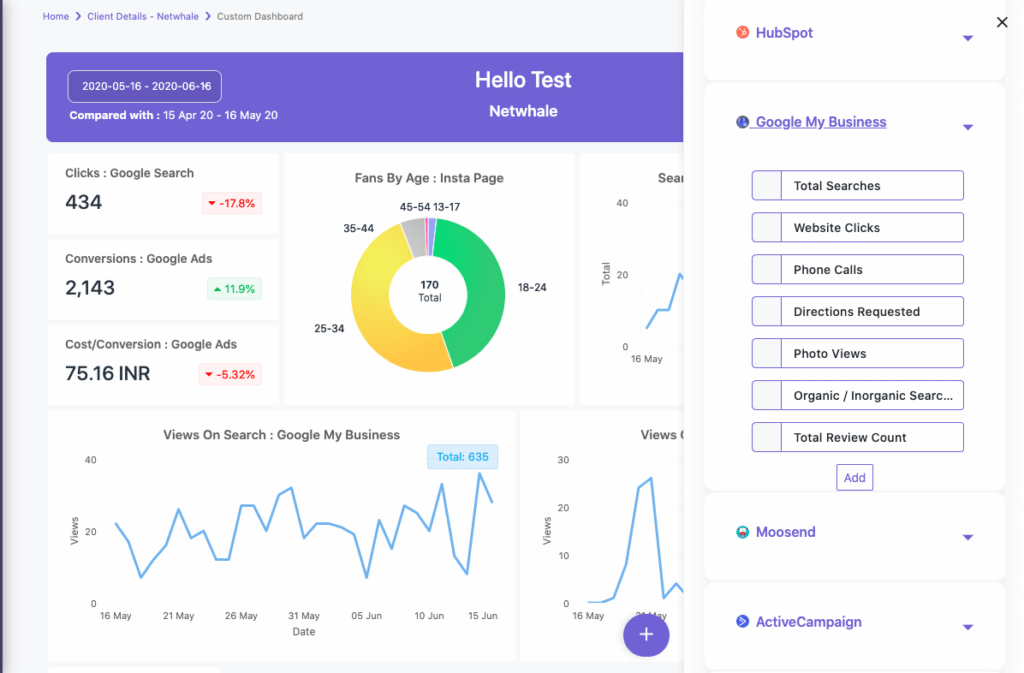
The sheer volume of this data makes it a tough process to sort, prioritize, filter and analyze it all so that you can know how to make your marketing strategy better.
This is where marketing dashboards can help you make your life a little easier, and help you breathe a little better so you can keep fantasizing about that raise and that corner office that you will get next month for the awesome improvements you made in the digital marketing of your company.
What Is A Marketing Dashboard?
A marketing dashboard typically presents the KPI’s (Key Performance Indicators) and other key metrics of your marketing campaign, in a simplified way.
This will give you a means to easily analyze performance. Most marketing dashboards are updated frequently, giving you an a real-time look into the fluctuations in metrics.
In simple words its a magic tool that processes the massive amount of data that makes your head spin, and reduces it into a few facts and figures and some colorful graphs and charts that are simple to understand.
GreyMetrics is a Marketing Dashboards Software that connects to 20+ Marketing Data Platforms & Allows you to create Beautiful Dashboards like this
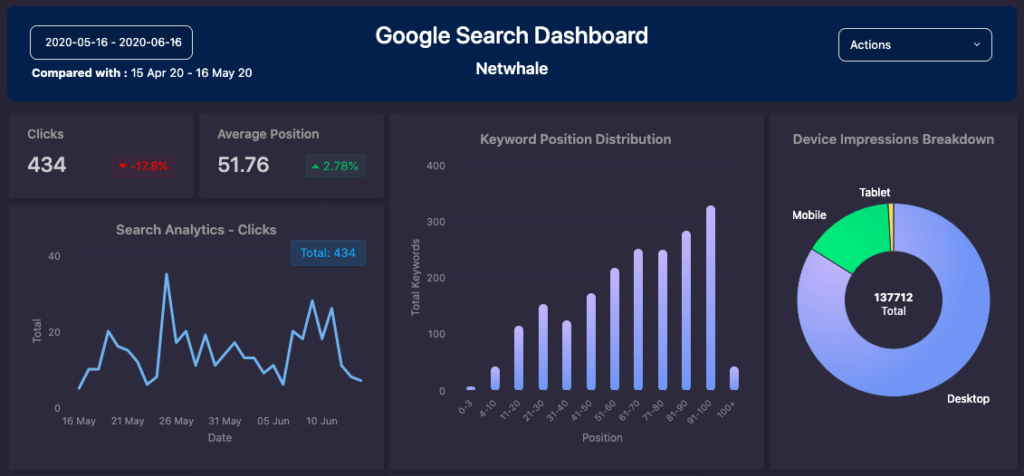
How Does A Marketing Dashboard Make Your Life As A Marketer Easier?
- Understand The ’Why’ & Not Just The ‘How’
Marketing dashboards are updated frequently, usually by a customizable time period as per your personal preferences as to how often you need updates. (Updated Every 1 Hr on GreyMetrics Live Dashboards)
This enables you to track your KPIs in real-time.
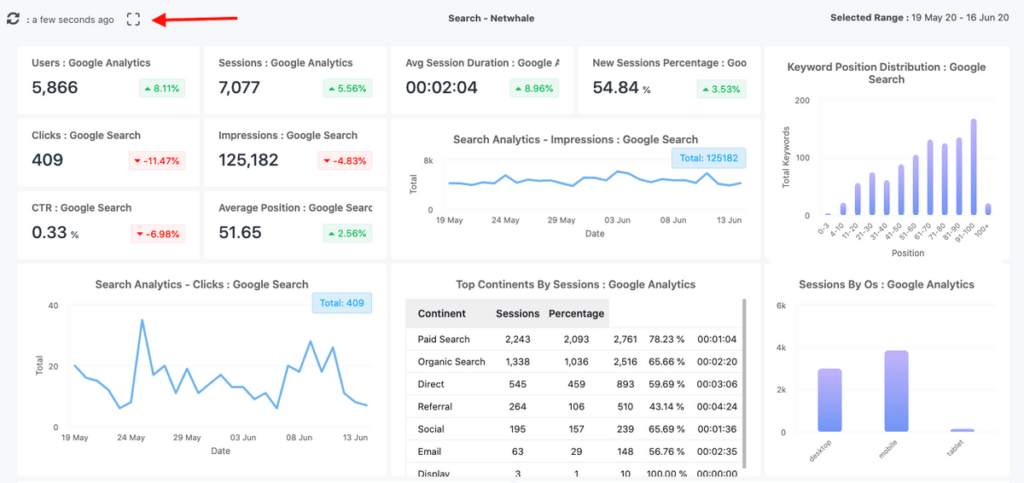
Using a marketing dashboard, you are able to establish direct correlations between the actions you take in your marketing campaign, and the impacts it has on your key metrics.
For example, you can track the click through rates on the CTA of a new ad, and compare it with the performance of previous ads to determine whether or not to discontinue it.
- Filtering Data
Marketers tend to get overwhelmed by the large amounts of data that gets thrown at them. They get caught up in little statistics, numbers that might not be relevant, and thus waste time and effort.
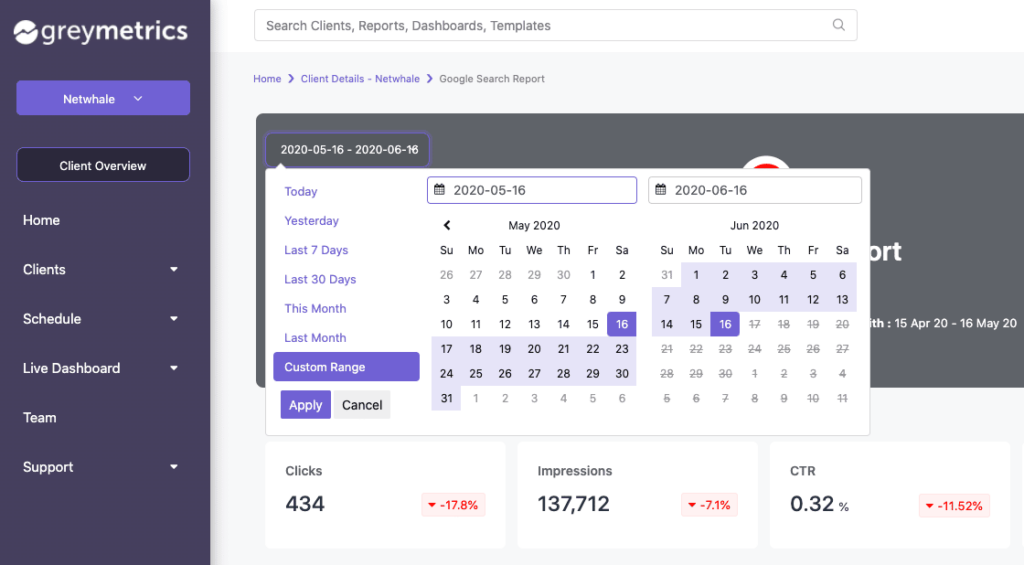
Marketing dashboards help in filtering and prioritizing data so that you only see what you need to see. You may seek help from a marketing advisor to help you set up your first dashboard.
- See The Big Picture
With a marketing dashboard, you can see all of your key metrics side by side. You can see graphs and charts outlining their progress through a week, a month, or a year.
You can see comparisons with your previous marketing models to determine what you’re doing right and what you’re not, and ultimately improve your ROI.
You can see correlations between different metrics.
All in all, a marketing dashboard allows you to see a complete and comprehensive picture of the performance of your marketing campaign.
- Instant & Easy Access To Data Anywhere, Anytime
You never know when you might need a particular piece of data.
You are in the middle of a meeting and a client asks you for the ROI for a particular month, or the efficacy of a particular ad.
Instead of wading the data jungle looking for that info, you can easily fish it out using your marketing dashboard. You can access the data on different devices and also share it easily.
- Real Time Updates
Frequency of updation of data depends upon the dashboard you’re using as well as personal preference.
Our dashboards offer close to real-time updation of data, meaning you stay on top of every fluctuation of your key metrics and you can act accordingly.
Depending on how often you want a report, you can set a reporting frequency to daily, weekly or monthly. You will receive an email with your metrics.
- Save Time, Money & Effort
The time and effort you save not having to manual processing and filtering all your data and preparing performance reports and is significant.
Data is automatically collected, organized and presented from internal and external sources in an automated process in most dashboards.
Seeing the performance and impacts of each element of your campaign in real-time means you can divert your funds more efficiently, which saves a lot of money.
- Reporting & Communication
Reporting your findings has never been easier.
When going into a meeting to present your monthly report, you can simply open up the dashboard to present to every one the latest metrics.
It is a simple matter in almost all dashboards to download reports in the format of your choice, so that you can email them to your clients, bosses or co-workers without hassle.
You can choose to highlight only your positive progress when showing a client, with only simple and easy to understand data points, and you can opt for a more detailed and frank view with your team members.
Use of marketing dashboards can facilitate transparency within a team, an organization and also with clients.
What To Include In A Marketing Dashboard?
Prioritizing your data points is something that you have to personally do in order to achieve the most out of a dashboard.
By analyzing your goals, your strategies and outcomes you have to decide what metrics you need to see immediately and what you do not need to see.
That is why the more customizable and flexible a dashboard is, the better it is.
A dashboard will typically show soft metrics, hard metrics and online marketing metrics. An all-in-one digital marketing dashboard will probably feature metrics such as-
- Traffic sources
- ROI data
- Social Media traffic and reach
- Click through rates of CTAs
- Bounce rates
A dashboard may include these and other metrics as per personal settings and type of dashboard.
Things To Look For In A Marketing Dashboard Software
1) Availability of Templates: Used for a different variety of purposes, like Digital Marketing Dashboard, Content Performance Dashboard, Lead Generation Dashboard, SEO Dashboard etc.
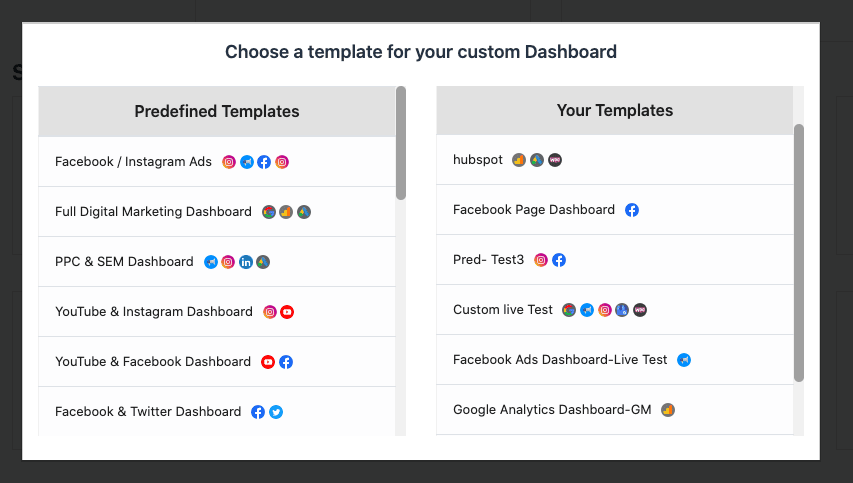
2) Ease of Customization: Ease of customization and flexibility is important when choosing a marketing dashboard because each marketer, strategy and organization will have unique needs.
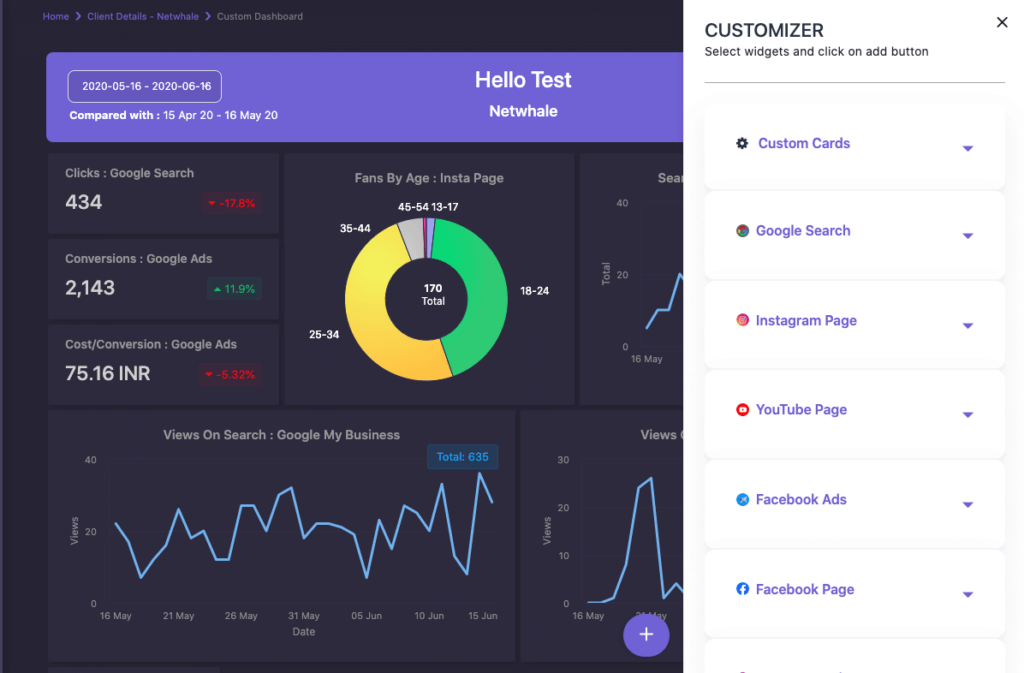
3) Mobile Friendly Dashboards: Another thing to keep in mind while looking at dashboards is accessibility. A dashboard that can only be accessed from a PC might present problems and you need to be able to check on your progress anytime, anywhere.
Your dashboards should have a mobile friendly interface so you have access to real time updates.
4) WhiteLabelled: As an agency you may need the reports to be with your logo & have no mention of the software you are using
5) Dedicated Client Login on Your Domain: A portal with all your dashboards at one location will serve as a trust builder with your clients & management. Set it up on your domain in minutes
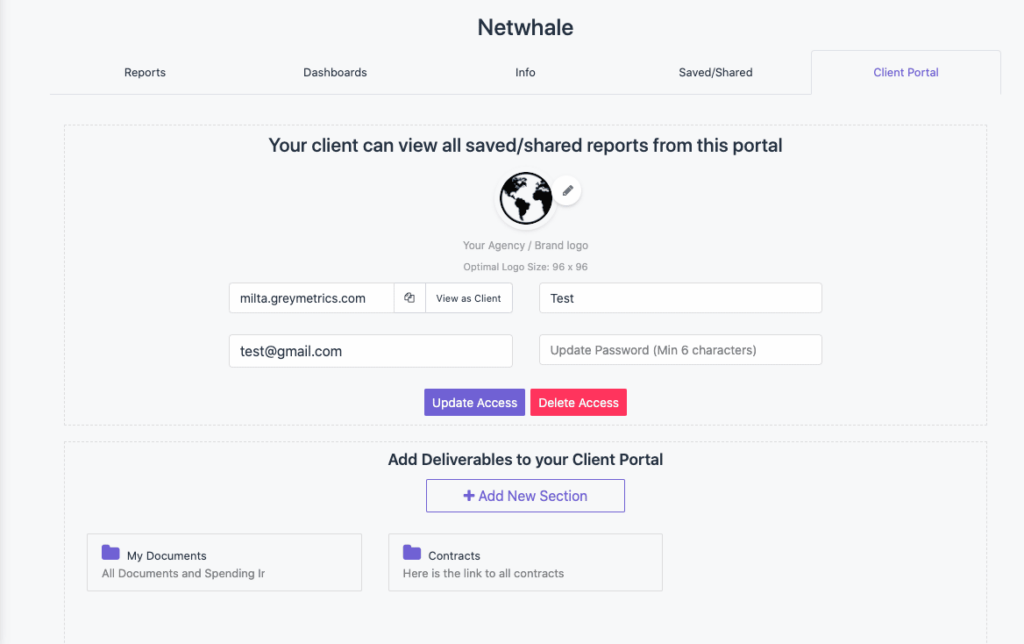
The important thing to note is, no matter how good your dashboard is, it does nothing by itself. It is simply data.
Well organized and well presented data but data all the same.
It gives you stats so you can make informed decisions. Keep a close eye on the data that your dashboard provides you and take action.
Correct and improve your strategies.
Use of Marketing dashboards are becoming more widespread within the digital marketing community and they are also constantly improving and growing.
With the growth of AI and ML technologies, Marketing dashboards may also be tailored to include predictive analytics and offer suggestions for improved marketing strategies.
Who knows, in the future, they may even outgrow the need for human marketers (Let’s hope that doesn’t happen)